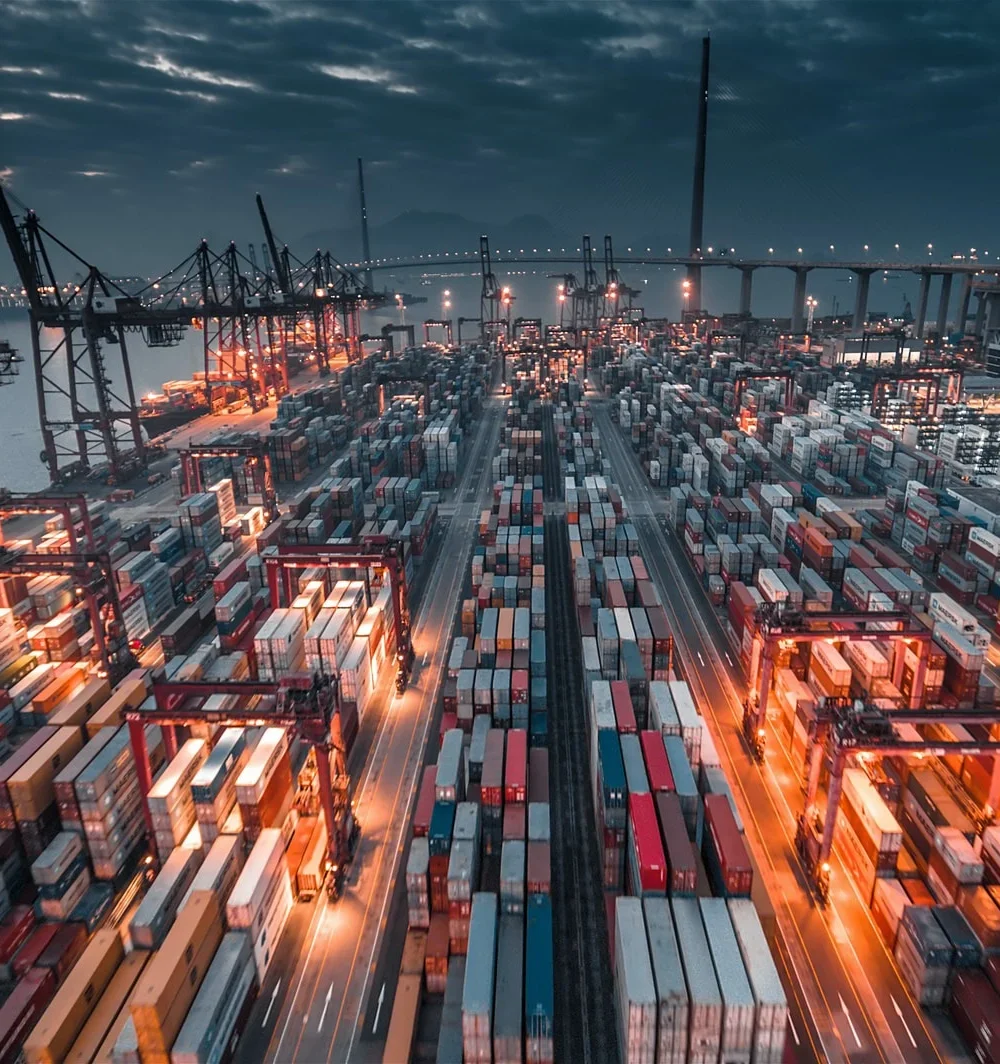The metals
trading industry, which serves as a foundation for countless global industries,
is no stranger to complexity and challenges. From verifying the provenance of
materials to ensuring compliance with ethical standards, transparency has long
been a critical issue. Blockchain technology, with its ability to provide
secure, tamper-proof records, is emerging as a transformative solution for
building transparency in metals trading. Platforms like MetaMetalX are at the
forefront of this digital revolution, leveraging blockchain to enhance trust,
efficiency, and accountability.
The Importance of
Transparency in Metals Trading
Transparency in
metals trading is essential for fostering trust among stakeholders, ensuring
compliance with regulations, and mitigating risks such as fraud and unethical
sourcing. Key aspects of transparency in the industry include:
Provenance Verification:
Ensuring that metals are sourced ethically and sustainably.
Compliance: Adhering
to international trade regulations and environmental standards.
Quality Assurance:
Providing accurate and verifiable information about the composition and
grade of materials.
Transaction Security:
Preventing fraud and ensuring the integrity of financial and trade data.
The traditional
methods of ensuring transparency, such as manual record-keeping and audits are
often time-consuming, error-prone, and vulnerable to manipulation. Blockchain
technology addresses these challenges by creating a secure, decentralised
ledger that records every transaction in real time.
How Blockchain Enhances
Transparency in Metals Trading
Blockchain
technology is a decentralised digital ledger that records transactions across a
network of computers. Its key features—immutability, transparency, and
decentralisation—make it ideally suited for enhancing transparency in metals
trading. Here are some of the ways blockchain is transforming the industry:
1. Provenance
Tracking
One of the most
significant applications of blockchain in metals trading is provenance
tracking. By recording the entire lifecycle of a metal—from extraction to final
delivery—on a blockchain, stakeholders can verify its origin and ensure
compliance with ethical and environmental standards.
Ethical Sourcing:
Blockchain enables traders to confirm that metals are sourced from
conflict-free zones and adhere to fair labour practices.
Sustainability:
The technology supports the tracking of recycled materials, promoting
circular economy practices.
MetaMetalX integrates
blockchain solutions to provide users with verifiable records of provenance,
helping them meet regulatory requirements and build trust with customers.
2. Enhanced
Supply Chain Visibility
Blockchain
technology offers unparalleled visibility into the supply chain, allowing
stakeholders to monitor the movement of materials in real time. This
transparency reduces inefficiencies and ensures that all parties are informed
about the status of shipments.
Real-Time Updates:
IoT sensors combined with blockchain provide real-time data on the
location and condition of shipments.
Fraud Prevention:
Immutable blockchain records eliminate the risk of tampering, ensuring the
authenticity of trade data.
3. Simplified
Compliance
Navigating the
complex web of international trade regulations can be a daunting task.
Blockchain simplifies compliance by automating the documentation process and
providing verifiable records for audits.
Automated Reporting:
Smart contracts can generate and share compliance reports automatically,
reducing administrative burdens.
Audit Readiness:
Blockchain’s tamper-proof records ensure that all necessary documentation
is accurate and readily available.
4. Secure
Transactions
Blockchain
enhances the security of financial transactions by encrypting data and
decentralising storage. This reduces the risk of fraud and ensures the
integrity of payments.
Smart Contracts:
These self-executing contracts automatically enforce the terms of an
agreement, eliminating the need for intermediaries.
Payment Transparency:
Blockchain records all financial transactions, providing a clear and
immutable audit trail.
Benefits of Blockchain in
Metals Trading
The adoption of
blockchain technology in metals trading offers numerous benefits for
stakeholders across the value chain. Key advantages include:
1. Improved
Trust
By providing
verifiable and immutable records, blockchain fosters trust among stakeholders.
Buyers can confidently verify the quality and provenance of materials, while
sellers can demonstrate compliance with industry standards.
2. Increased
Efficiency
Blockchain
automates many aspects of metals trading, from documentation to payment
processing. This reduces administrative costs, eliminates redundancies, and
accelerates transactions.
3. Risk
Mitigation
The
transparency provided by blockchain helps mitigate risks such as fraud,
counterfeiting, and non-compliance. Stakeholders can identify and address
potential issues before they escalate.
4. Enhanced
Sustainability
Blockchain
supports the tracking of recycled metals and the implementation of circular
economy practices, aligning the industry with global sustainability goals.
5. Global Reach
By simplifying
cross-border transactions and ensuring compliance with international
regulations, blockchain enables businesses to expand their reach into global
markets.
Challenges of Implementing
Blockchain in Metals Trading
While the
benefits of blockchain are compelling, its implementation is not without
challenges. Businesses must address the following issues to fully realise its
potential:
1. High Initial
Costs
Developing and
deploying blockchain solutions can be expensive, particularly for small and
medium-sized enterprises. However, the long-term cost savings and efficiency
gains often justify the investment.
2.
Technological Integration
Integrating
blockchain with existing systems and processes requires careful planning and
expertise. Businesses must ensure that their infrastructure is compatible with
blockchain technology.
3. Data Privacy
Concerns
While
blockchain enhances transparency, it also raises concerns about data privacy.
Companies must strike a balance between transparency and confidentiality,
ensuring that sensitive information is protected.
4. Regulatory
Uncertainty
The regulatory
landscape for blockchain technology is still evolving, creating uncertainty for
businesses. Clear and consistent regulations are needed to facilitate
widespread adoption.
How MetaMetalX is Leading
the Way
MetaMetalX is
at the forefront of integrating blockchain technology into metals trading,
providing innovative solutions that enhance transparency and efficiency. Here’s
how MetaMetalX is driving change:
Blockchain-Powered Platform:
MetaMetalX’s platform leverages blockchain to provide secure and
transparent records of transactions, ensuring trust and accountability.
Smart Contracts:
The platform uses smart contracts to automate processes such as payment
settlement and compliance reporting, reducing administrative burdens.
Provenance Tracking:
MetaMetalX enables users to trace the origin and lifecycle of metals,
ensuring ethical sourcing and sustainability.
Global Connectivity:
By simplifying cross-border transactions, MetaMetalX connects stakeholders
across the globe, fostering collaboration and growth.
The Future of Blockchain in
Metals Trading
As blockchain
technology continues to evolve, its applications in metals trading will expand,
offering new opportunities for innovation and growth. Key trends to watch
include:
Integration with AI and IoT:
Combining blockchain with AI and IoT will enhance supply chain visibility
and predictive analytics, enabling smarter decision-making.
Decentralised Marketplaces:
Blockchain will facilitate the development of decentralised trading
platforms, empowering businesses to trade directly with minimal
intermediaries.
Enhanced Sustainability Metrics:
Advanced blockchain solutions will enable detailed tracking of
environmental and social impacts, helping businesses meet sustainability
targets.
Conclusion
Blockchain
technology is revolutionising the metals trading industry by providing
unparalleled transparency, efficiency, and security. For platforms like
MetaMetalX, integrating blockchain is not just a technological advancement but
a strategic imperative that addresses the industry’s most pressing challenges.
As the adoption
of blockchain continues to grow, businesses that embrace this technology will
be better positioned to thrive in an increasingly competitive and regulated market.
With its innovative solutions and commitment to transparency, MetaMetalX is
leading the way in shaping the future of metals trading.
Building Transparency in Metals Trading Through Blockchain
0
Comments
Likes
Clear Filters





